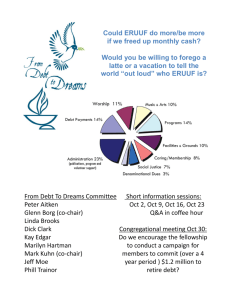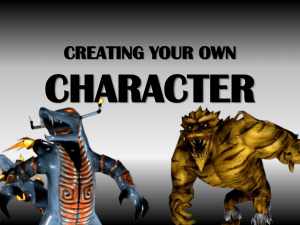Greek & Roman Mythology 2
advertisement
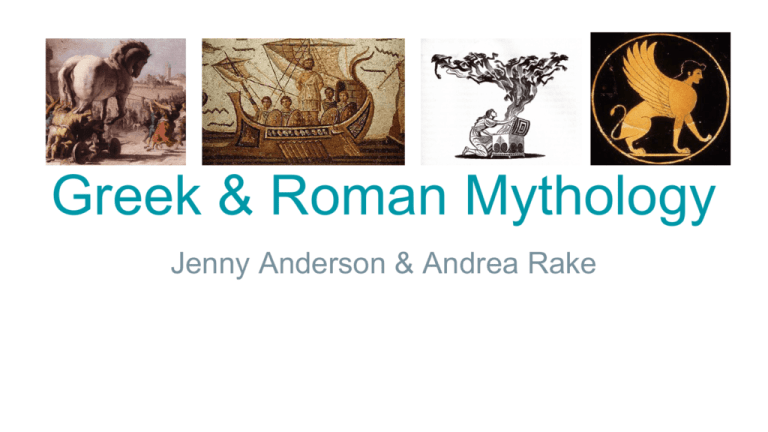
Greek & Roman Mythology Jenny Anderson & Andrea Rake Oedipus ● ● Oedipus Rex is the story of a man named Oedipus who is abandoned in the woods as a child by his father Laius, the king of Thebes, because the oracle of Delphi told the king that he would be murdered by his son. Oedipus is adopted by the king and queen of Corinth, but flees back to Thebes when he learns of the prophecy and is afraid he will kill his adopted father and marry his adopted mother. After he solves the riddle of the Sphinx and enters the city, the people of Thebes make him king for solving the riddle, and because his father died somewhere along the way he ends up marrying his real mother, the queen of Thebes. The main theme in the story of Oedipus is the acceptance of fate and things outside of our control. ● Antigone ● Antigone would be the daughter of Oedipus, like him all of his children were suck with his fate. After his death, his two sons were to rule the kingdom and fought over who was right and ended up starting a war. They both fought to the death and Eteocles was declared the hero by the new king Creon. He was said to have a propor burial and his brother Polynices was sentenced to have his body outside the kingdom to be eaten by the dogs. Antigone didn't like this so she snuck out and burned his body properly. Creon treated her like any other criminal and was sentenced to starve to death in a cell. One major theme in the story of Antigone is that power corrupts people and someone who was once reasonable and kind may be turned cruel and arrogant when given too much power. The Trojan Horse and the Fall of Troy ● ● During the war between the Greeks and the Trojans, there was a point where neither side was winning, until Odysseus and the Greeks came up with the idea of the Trojan Horse. They put Greek soldiers inside a giant wooden horse and gave it to the Trojans as a gift, and when the Trojans brought it into their city and fell asleep that night the Greeks came out and tore down the walls around the city so that the other Greeks could get in and attack. The Greeks then one the large battle that ensued. A big theme in this story is intelligence, because instead of just attacking the Trojans head-on Odysseus is cunning comes up with a plan to guarantee the Greeks' victory. Achilles ● ● ● When Achilles was a baby, his mother dipped him in a magic river that gave him the power of invincibility; he could not be harmed anywhere on his body except for the spot on his heel that his mother had held him by. When Achilles grew up, he was told a prophecy that said he could make the choice to live humbly and die without fame or honor, or he could choose to die young but always be famous and remembered as a hero. Achilles chose the latter because he thought he could not be killed, but in the Trojan War was shot with an arrow in his vulnerable heel and died. Arrogance and pride are major themes in the story of Achilles, because if Achilles had not thought himself invincible and had chosen to live quietly without fame he would not have been killed in the Trojan War. "Weak spot" in the hero's armor Paris & Helen ● ● Paris was a man chosen by the three goddesses Athena, Aphrodite, and Hera to decide which of them was the most beautiful, and was bribed by each of them in order to get him to choose them as the most beautiful. Paris ultimately chose Aphrodite because she offered him the most beautiful woman in the world. Aphrodite then made the woman, named Helen, run away with Paris back to Troy where they were married. Her real husband, Menelaus, became angry and had his brother send the Greek armies to attack Troy and get his wife back. "The face that launched a thousand ships" is often alluded to because of Helen's great beauty that started the Trojan War. Midas ● Midas was king of Phrygia who had set free Silenus, the right hand to the God Dionysus, after he was caught in his vineyard. They were so grateful that they gave him one wish and he chose for everything he touched to turn to gold. Silenus asked him if he was sure that that was what he wanted and he said yes. So Midas went around to see if it had worked and sure enough, it had. He wanted to show his daughter something so he grabbed her hand and went to lead her outside but she wouldn't come. He realized as he looked back at her, that she had turned to gold as well. This was a struggle for him as he tried to eat and then he realized what Silenus had meant when he asked if he was sure that was what he wanted. He went back to the Gods and told them about his troubles and they were grateful to him and allowed for him to be washed free of the magic in the Pactolus river. ● The allusion is be careful what you wish for. Bacchus ● ● Bacchus was a shape-shifting Roman god who was one day kidnapped by pirates when he took on the form of a rich man. After escaping taking over their ship and landing on the island of Naxos, he met a woman named Adriadne, took her off the island, and they lived happily ever after. Both shape-shifting and rescuing the "damsel in distress" are themes that are often alluded to. The Oresteia ● ● The Oresteia is a trilogy of Greek plays written by Aeschylus that describes the homecoming of King Agamemnon from the Trojan war. However, his queen has been plotting his murder as revenge for sacrificing their daughter. In the second play, his other daughter Electra and son Orestes reunite in order to kill his wife as revenge for killing him. The third play then deals with the Orestes being pursued to Athens by his brother and tried for his crimes. Conflicts between old and new gods, the unclear line between right and wrong, and conflict between tyranny and democracy are all themes in the Oresteia. Leda and the Swan ● ● Leda was a Greek queen who was seduced by Zeus in the form of a swan. Most versions of the story say she then laid two eggs, out of which hatched Helen (of Troy), Pollux and Castor (the twins represented in the Gemini constellation), and Clytemnestra (wife of Agamemnon). Leda and her daughters were in a way the original temptresses, their actions and choices (and in Helen's case beauty) provoke death, warfare and murder. The most wellknown takeoff on Leda's story is Yeats' poem Leda and the Swan, which represents the English taking advantage of the Irish in the same way Zeus took advantage of Leda. Pandora ● ● Pandora was sent down to Earth by the gods and given a box which she was told never to open, and the key was given to her husband. However, one day her curiosity got the better of her and she opened the box, letting loose all the bad things in the world. This is the Greeks' explanation of how things like crime, sickness, pain, and hate came to be. Curiosity is a major theme in this story, and the concept of characters not heeding a warning is commonly alluded to. Odysseus ● ● Hero of Homer's the Odyssey, portrayed as the ideal hero: clever, courageous, loyal, and resourceful. Odysseus displays these attributes throughout his adventures in the Trojan War and on his journey back home to Ithica. The illusion to Odysseus is "the ideal hero" character who has to endure many challenges that test his heroic attributes. Works Cited "Achilles." - Ancient Greek Myth. Kidipede, n.d. Web. 01 Oct. 2015. "Bacchus & AriadneGreek Name: Dionysus." Bacchus, the Pirates, & Ariadne. N.p., n.d. Web. 01 Oct. 2015. "Greek Literature: Antigone." Antigone. Kidipede, n.d. Web. 01 Oct. 2015. "Judgment of Paris." - Trojan War. Kidipede, n.d. Web. 01 Oct. 2015. "Leda." Leda. MMIX Encyclopedia Mythica, 3 Mar. 1997. Web. 01 Oct. 2015. Mastin, Luke. "The Oresteia - Aeschylus - Ancient Greece - Classical Literature." The Oresteia - Aeschylus - Ancient Greece Classical Literature. N.p., 2009. Web. 01 Oct. 2015. "Odysseus | Greek Mythology." Encyclopedia Britannica Online. Encyclopedia Britannica, n.d. Web. 01 Oct. 2015. "Oedipus Rex." - Sophocles. Kidipede, n.d. Web. 01 Oct. 2015. "Pandora." - Ancient Greek Myth. Kidipede, n.d. Web. 01 Oct. 2015. "The Trojan Horse." Trojan Horse. Kidipede, n.d. Web. 01 Oct. 2015.
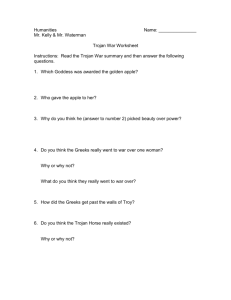
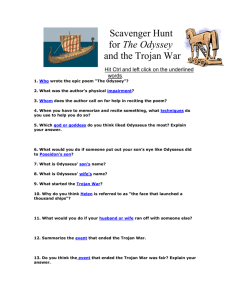
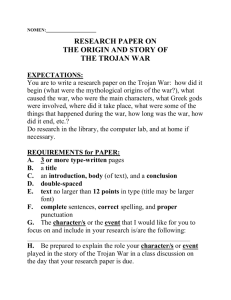
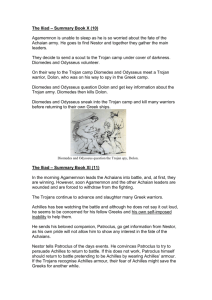
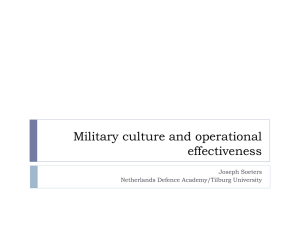
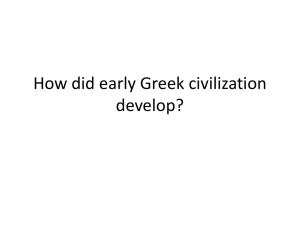
![Trojan War Prose Piece[1]](http://s3.studylib.net/store/data/007680996_2-484eae3aa0803e04b1d1df6571609778-300x300.png)
